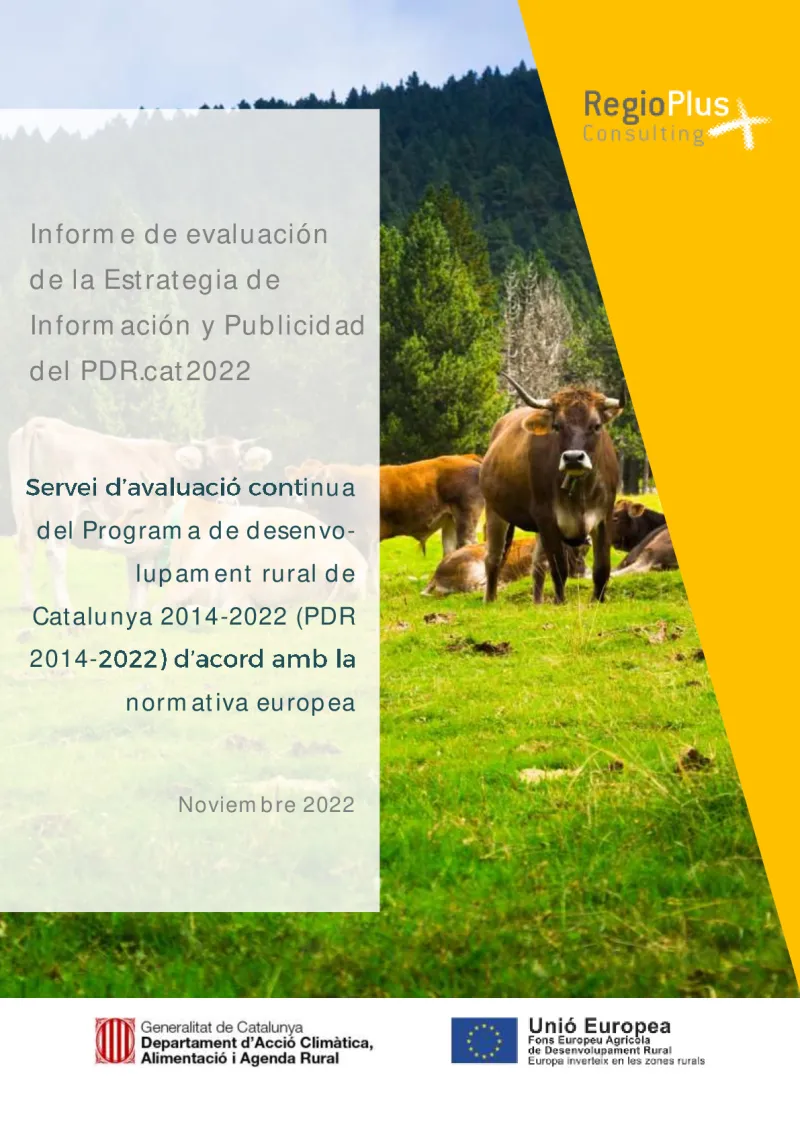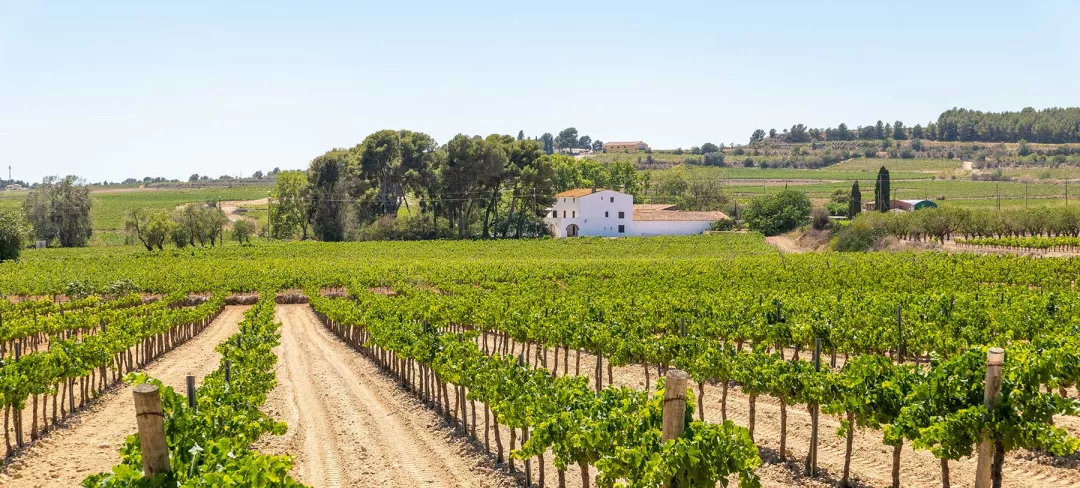Evaluation report on the Catalonian 'Information and Advertising Strategy'
The report assesses the 2022 Information and Advertising Strategy in Catalonia.
- Spain
- 2014-2022
- Cross-cutting impacts


The evaluation concerns the Rural Development Programme (RDP) of Catalonia and covers the period of 2014-2022. It was commissioned by the RDP Managing Authority (the Department of Climate Action, Food and Rural Agenda) and published in 2022.
The evaluation intended to provide an assessment of the 'Information and Advertising Strategy' (version 3.0, April 2022) in terms of relevance, internal coherence, effectiveness, impact and adequacy of resources obtained.
The methodology used for developing the evaluation integrates the participatory approach of actors involved in implementing the Information and Advertising Strategy with a document analysis based on the information and 'Advertising Strategy' of the Catalonian RDP, follow-up information (system of performance and result indicators), annual implementation reports and best practice sheets presented in evaluation reports each year.
In addition, fieldwork was led to collect specific information through an online workshop attended by those responsible for the implementation of the Information and Advertising Strategy. The workshop answered the following evaluation questions:
- What level of relevance, effectiveness and impact do the communication measures undertaken have in terms of the results and effects achieved?
- Is there consistency in the intervention logic of the Information and Advertising Strategy?
- What is the degree of achievement of the objectives of the Information and Advertising Strategy?
- Were the resources earmarked for the planned development of the Information and Advertising Strategy adjusted?
The evaluation concludes that the Information and Advertisement Strategy has practically considered the lessons learned from the past period and EU communication guidelines.
The consistency and validity of the intervention logic were considered to be positive, as well as the responsibility for the implementation of the strategy and the adequacy of the indicators established for monitoring the progress of the measures of the strategy.
Overall, progress in implementing the performance and outcome indicators associated with the measures of the Information and Advertising Strategy is positive, with averages per Specific Objective exceeding 84% in all cases. However, there is room for improvement, as the RDP impact in rural areas is not reflected enough in the communication actions.
The achievement of the operational objectives of the Information and Advertisement Strategy were effectively reached. Nevertheless, different needs were identified by the fieldwork: the creation within the Department of Climate Action, Food and Rural Agenda (DACC) of a working team advised by professionals of the communication sector, exchanging ideas with other EAFRD communication strategy managers and the need for a communication plan, beyond the strategy, that sets out what to communicate, how and where.
Human resources and communication material are considered insufficient to exploit the potential of all the actions carried out under the RDP, or to give visibility to those directly impacting rural areas.
Author(s)
RegioPlus Consulting